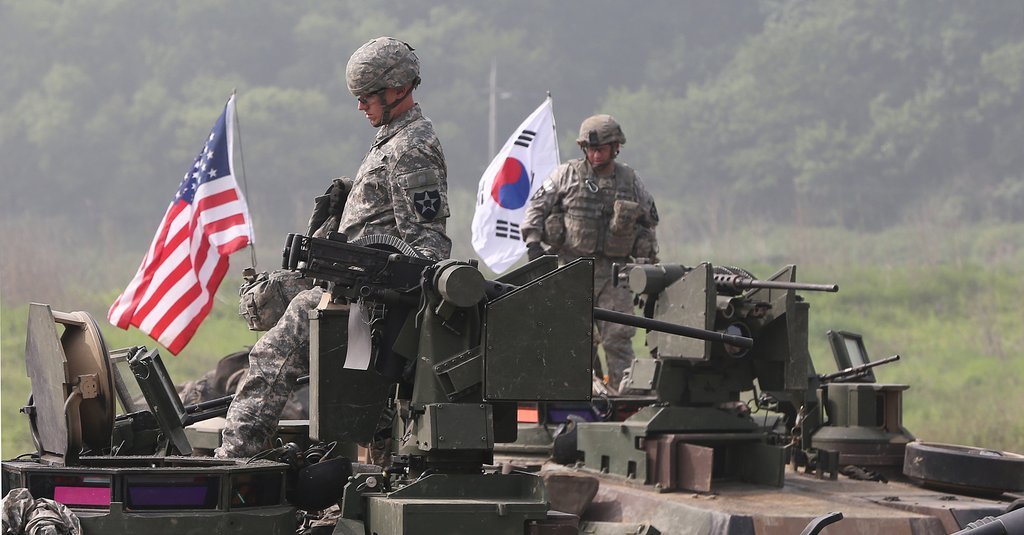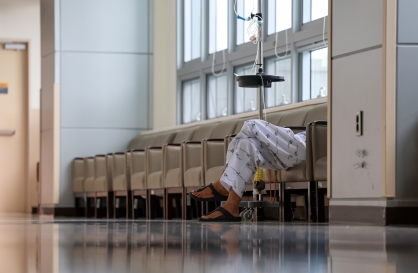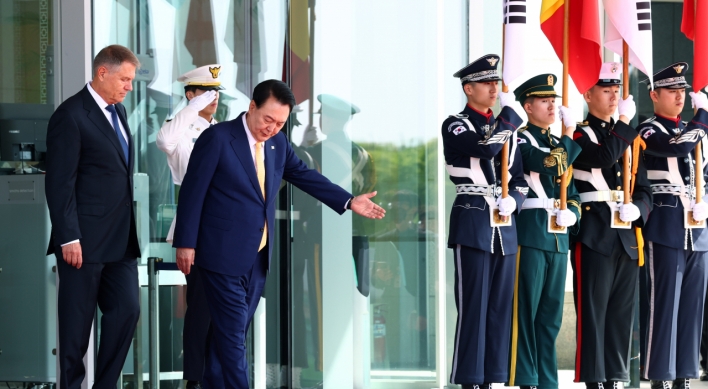S. Korea, US kick off joint summertime exercise amid COVID-19 concern
By YonhapPublished : Aug. 18, 2020 - 09:17

South Korea and the United States on Tuesday kicked off their annual summertime combined exercise in a scaled-back manner amid the coronavirus pandemic, officials said.
The computer-simulated Combined Command Post Training (CCPT), which will run until Aug. 28, is the first major exercise between the two countries this year as their annual springtime exercise was called off due to COVID-19.
The first part of the exercise, which is to run until Saturday, will focus on how to defend the South against an invasion by North Korea, and the second part, set for Aug. 24-28, will be based on the scenario of launching a counterattack in response, according to the officials.
In the run-up to the exercise, the two sides held a four-day crisis management staff training last week.
The exercise was initially set to begin on Sunday but was pushed back after a South Korean Army officer who was supposed to take part in the exercise tested positive for the coronavirus, according to the officials.
"All the service members who had close contact with the officer tested negative for the virus," a military officer said. "We've been implementing tougher quarantine and virus prevention schemes and increased monitoring by operating a separate task force. Currently, the exercise is under way without a hitch."
In South Korea, new cases have soared in recent days, mostly in Seoul and the surrounding regions, to reach a five-month high.
The summertime training will be smaller in scale compared with previous ones, as American troops necessary for the program were not able to come to South Korea under coronavirus-related restrictions. The two sides also decided to skip nighttime training programs out of virus concerns, the officer noted.
As the exercise will be staged in an adjusted manner, Seoul and Washington are unable to fully carry out the planned Full Operational Capability (FOC) test for Seoul's envisioned retaking of the wartime operational control (OPCON) of its forces from the US.
As the FOC test is one of the crucial steps to verify if Seoul is on course to meet the conditions for the transition, chances are that the envisioned transfer is unlikely to take place within the current Moon Jae-in administration, whose term will end in May 2022.
No specific deadline has been set for the OPCON transition, as it is conditions-based, not time-based, though many see the two sides eyeing around 2022 as the target date.
During last year's summertime exercise, Seoul and Washington conducted an initial operational capability (IOC) test, and their defense ministers decided to move on to the FOC test. Following the FOC test, the two sides will carry out a Full Mission Capability (FMC) test.
How North Korea would react to the combined exercise is also a focus of attention.
The communist country has long lashed out at South Korea-US combined exercises, calling them a rehearsal for invasion of the North.
In June, the regime drastically heightened tensions on the Korean Peninsula by blowing up the inter-Korean liaison office building in its border town of Kaesong and threatening to take military actions against the South.
But it suspended those plans upon leader Kim Jong-un's instruction, and has since not taken major provocative steps.
Currently, North Korea has also been conducting summertime military drills, but they are taking place on a smaller scale as the authorities are zeroing in on quarantine efforts against the new coronavirus as well as recovery work after damage by recent heavy downpours, according to Seoul's military officers.
North Korea has not officially made comments on this year's South Korea-US combined exercise, though some of the country's propaganda outlets demanded a halt to the program while warning of war.
On Tuesday, the North's Korean Central News Agency said the country will hold a plenary party meeting Wednesday to discuss issues for the enhancement of the party's "fighting efficiency." (Yonhap)



![[AtoZ into Korean mind] Humor in Korea: Navigating the line between what's funny and not](http://res.heraldm.com/phpwas/restmb_idxmake.php?idx=644&simg=/content/image/2024/04/22/20240422050642_0.jpg&u=)




![[Herald Interview] Why Toss invited hackers to penetrate its system](http://res.heraldm.com/phpwas/restmb_idxmake.php?idx=644&simg=/content/image/2024/04/22/20240422050569_0.jpg&u=20240422150649)

![[Graphic News] 77% of young Koreans still financially dependent](http://res.heraldm.com/phpwas/restmb_idxmake.php?idx=644&simg=/content/image/2024/04/22/20240422050762_0.gif&u=)




![[Exclusive] Korean military set to ban iPhones over 'security' concerns](http://res.heraldm.com/phpwas/restmb_idxmake.php?idx=652&simg=/content/image/2024/04/23/20240423050599_0.jpg&u=)



